Dalai Lama confers blessings on Minneapolis-area Tibetans while checking out of Mayo Clinic
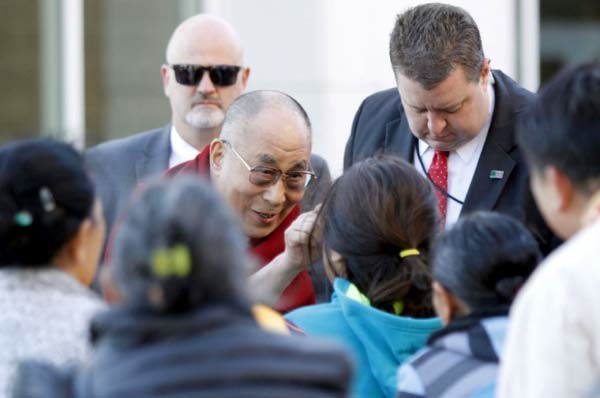
Reporter Hannah Yang from the Post Bulletin was present in Rochester, MN as His Holiness left the clinic:
The Dalai Lama stepped outside, surrounded by security personnel attempting to usher him inside. He smiled when he noticed a group of Tibetans standing nearby with shy, but overjoyed faces.
A security guard turned to them and said: “He said you can come to him.”
They ran to greet Tibet’s exiled Buddhist leader. They touched his hands, and he blessed them and several khata — silk scarves — meant for special occasions. After the Dalai Lama entered the center, the people were joyous.
“It means the world to us,” said Dorjee Damdul from Minneapolis after the meeting.
Wave of solo peaceful protests in Ngaba: repression and further restrictions imposed
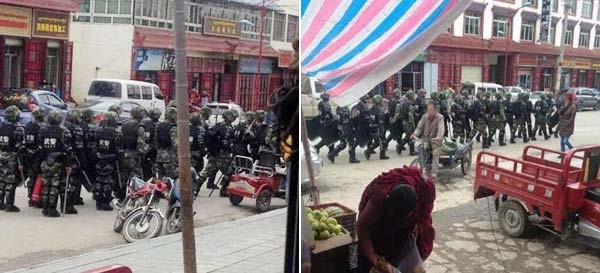
Troops on the streets of Ngaba (Chinese: Aba) county town following the protests in September.
A series of peaceful solo protests have taken place in Ngaba, one of the most oppressed areas of Tibet, in recent months. Tibetan monks and young women have called for the return of the Dalai Lama to Tibet, and freedom for Tibet. Several held up images of the exiled Tibetan religious leader or clasped their hands together in prayer. Images have since reached ICT of stepped-up patrols of paramilitary police in riot gear on the streets of Ngaba. The protesters’ actions are all the more striking given the political context; they know that the consequences of even mild expressions of dissent are likely to involve severe torture in custody and a possible prison sentence.
NGO coalition rally at White House highlights China’s human rights abuses
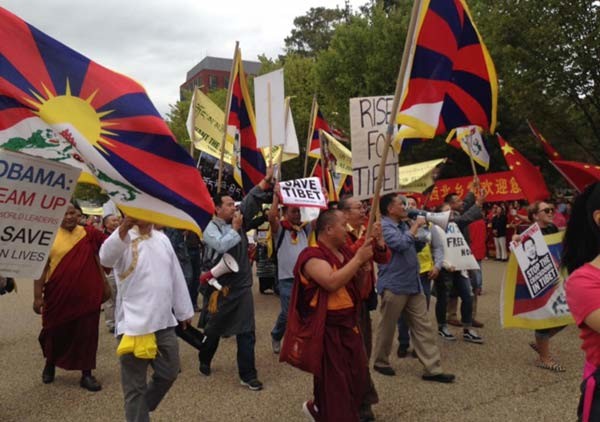
As President Obama hosted Chinese Communist Party leader Xi Jinping for a state visit, a coalition of human rights groups held a rally at Lafayette Park, near the White House, on September 25, 2015 to highlight China’s dismal human rights record and to urge President Obama to send a strong message to the Chinese leadership that human rights abuses in China must end. Under the banner of “Let Freedom Ring for Chinese, Tibetans, Uyghurs and Mongols,” hundreds of activists came together for speeches, songs, and chants. Earlier that morning a ‘Stateless Breakfast’ brought Members of Congress such as Nancy Pelosi and high-profile activists together, raising their glasses in honor of the many valiant human rights defenders inside China.
Obama urges China to engage the Dalai Lama
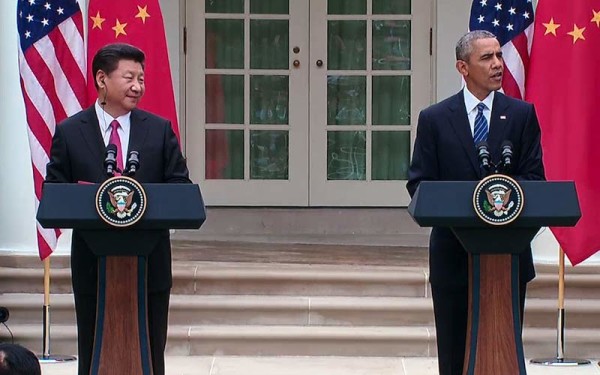
President Barack Obama and Chinese President Xi Jinping at their joint news conference on September 25, 2015 during which Obama raised the Tibet issue. (Photo: Official White House Photo)
On September 25, 2015, during a joint press conference at the White House with the visiting Chinese President, Xi Jinping, President Barack Obama urged China to engage the Dalai Lama and to preserve Tibetan identity, stating during his opening remarks: “Even as we recognize Tibet as part of the People’s Republic of China, we continue to encourage Chinese authorities to preserve the religious and cultural identity of the Tibetan people, and to engage the Dalai Lama or his representatives.”
“The repeated calls from both the US and the European Union on China to find a political solution to the Tibetan issue, reflects the strong support of both the American and the European public. The oppressive policies implemented in Tibet are a reason of concern for the broader direction taken by China and they should be challenged by the international community,” said Matteo Mecacci, ICT President.
Anniversary of UN women’s conference is opportunity to challenge Xi on lack of freedoms
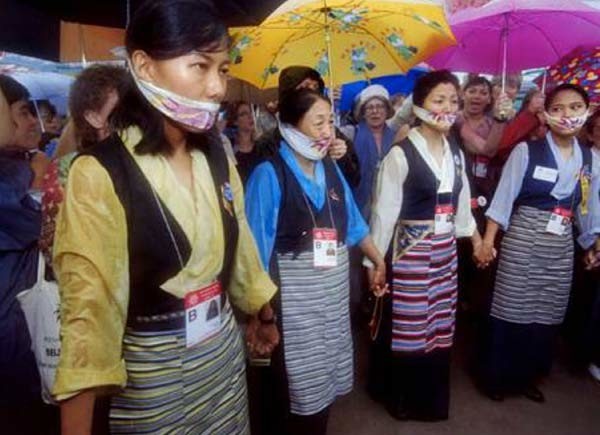
China’s leader Xi Jinping’s attendance at the World Conference on Women in the UN, on the 20th anniversary of the same conference held in Beijing in 1995, presented an opportunity to focus attention on the lack of freedoms of Tibetan, Uyghur and Chinese women in the PRC today. To mark the anniversary, Samantha Power, the U.S. ambassador to the UN, has launched the #FreeThe20 campaign calling for the release of 20 female political prisoners from 13 countries including Chinese human rights lawyer Wang Yu.
Matteo Mecacci, President of the International Campaign for Tibet, said: “Many will remember the vivid images from Beijing 20 years ago of nine Tibetan exile women standing silently, gagged with silk scarves to symbolize China’s silencing of Tibetan women’s voices. This initiative – by the first Tibetan exiles to protest Chinese rule over Tibet on Chinese soil – highlighted the courage and spirit of Tibetan women, who have long been on the frontline of resistance, solidarity in their community, and preservation of Tibetan identity and culture.”

